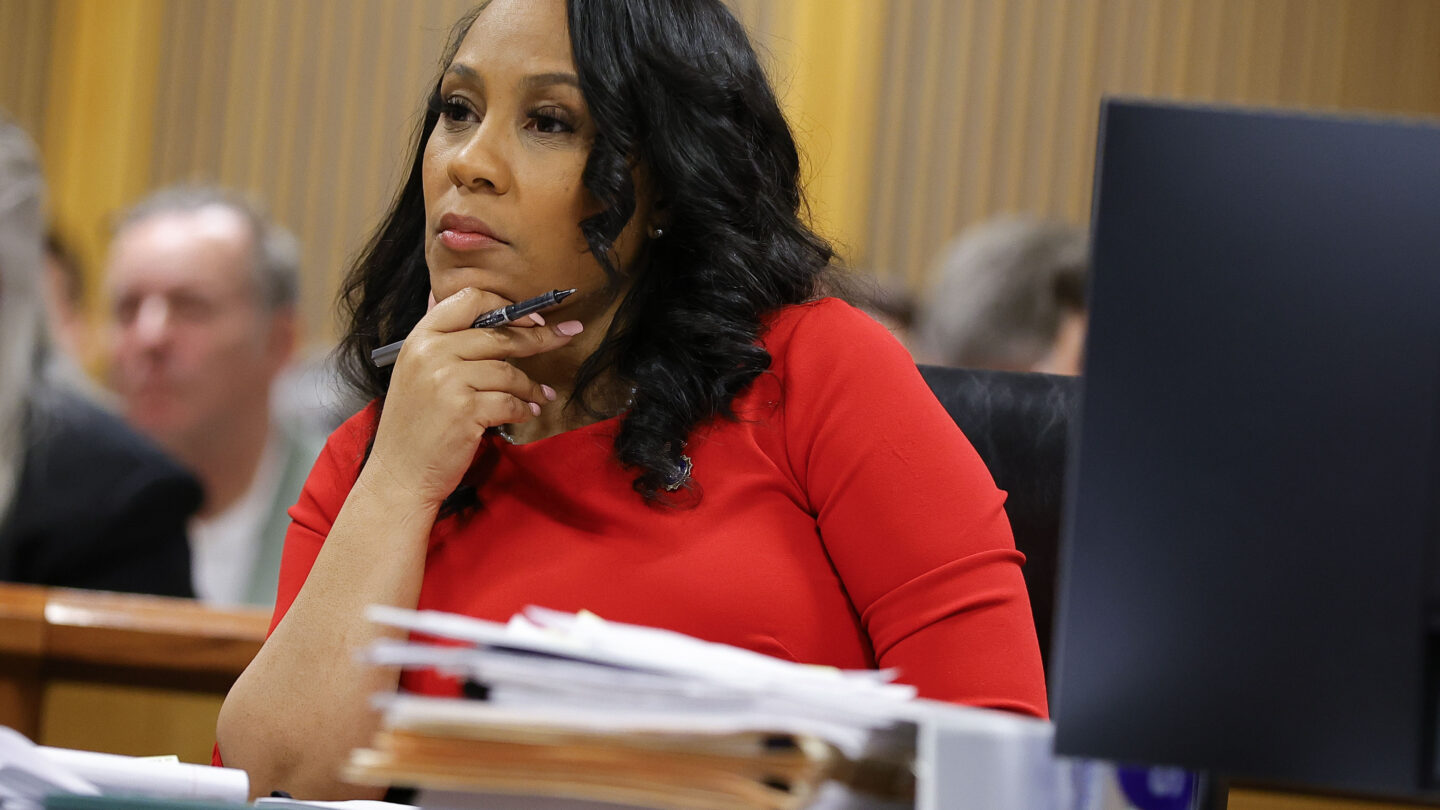Leaders of Georgia’s Fulton County testified Friday before a special state Senate committee that they had no legal power to control District Attorney Fani Willis’ spending or her hiring of former special prosecutor Nathan Wade.
The Republican-led committee is probing Willis’ hiring of Wade to lead a team to investigate and ultimately prosecute Donald Trump and 18 others accused illegally trying to overturn the 2020 presidential election in Georgia. Willis and Wade have acknowledged a romantic relationship with each other.
In one example of the kind of threats Willis has been receiving, federal officials announced that a California man was indicted on April 24 on charges of transmitting interstate threats against Willis. Ryan Buchanan, the U.S. attorney in Atlanta, said Marc Shultz, 66, of Chula Vista made threatening comments against Willis in the comment streams of two YouTube videos in October, pledging violence and murder including a statement that she “will be killed like a dog.”
Shultz’s indictment wasn’t available in online court records on Friday. Those records show Shultz appeared before a judge in San Diego on Thursday and was released on bail. A federal public defender representing Shultz didn’t immediately return an email seeking comment Friday. Buchanan said Shultz would be formally arraigned in Atlanta in June.
Trump and some other defendants in the case have tried to get Willis and her office removed from the case, saying the relationship with Wade created a conflict of interest. Wade stepped down from the prosecution after Fulton County Superior Court Judge Scott McAfee in March found that no conflict of interest existed that should force Willis off the case. But he ruled that Willis could continue prosecuting Trump only if Wade left. Trump and others are appealing that ruling to a higher state court.
The allegations that Willis had improperly benefited from her romance with Wade resulted in a tumultuous months in the case as intimate details of Willis and Wade’s personal lives were aired in court in mid-February. The serious charges in one of four criminal cases against the Republican former president were largely overshadowed by the love lives of the prosecutors.
Willis told reporters Friday that she had done nothing wrong.
“They can look all they want,” Willis said. “The DA’s office has done everything according to the books. We are following the law. I’m sorry that folks get mad when everybody in society can be prosecuted.”
Willis is running for reelection this year and faces a Democratic opponent, Christian Wise Smith in a May 21 primary. Early voting for that election is ongoing.
But the lawyer who initiated the effort to remove Willis, Ashleigh Merchant, has also claimed that Wade’s firing violated a state law that required approval of the hiring of a special prosecutor by the county commission.
Fulton County Commission Chairman Rob Pitts, a Democrat, and Fulton County Attorney Soo Jo both told the committee that while the law appears to require county commission approval, judges decades ago interpreted the law in such a way to give Willis the freedom to hire who she wants without approval. Jo, who represents the commission, cited three separate Georgia Court of Appeals cases backing up that point
“What I have found is that the court has rejected the proposition that this particular statute requires a district attorney to obtain explicit permission from a county prior to appointing a special assistant district attorney,” Jo said.
State Sen. Bill Cowsert, the Athens Republican who chairs the committee, disputed that interpretation when questioned by reporters after the hearing.
“I think the clear language of the statute says that that requires county approval, and especially where it’s funded by the county,” Cowsert said.
He went on to suggest the committee, which doesn’t directly have the power to sanction Willis, might change the law to give counties more control over spending by state officers funded by counties, including district attorneys and sheriffs. Fulton County officials said they don’t believe they currently can control how Willis spends money once it’s appropriated to her.
Cowsert said increased county oversight would be “extraordinarily complex” for district attorneys managing funds contributed by more than one county. While Willis and 15 other district attorneys in Georgia only prosecute cases from one county, others prosecute cases from as many as eight counties.
Senate Democratic Whip Harold Jones II of Augusta said the hours of questioning over details of how Fulton County budgets money shows the panel is “on its last legs,” noting three of six Republicans didn’t appear for a committee meeting called on short notice.
“They’re not even interested in this anymore,” Jones said. “There’s nothing else to talk about, quite frankly. And we found that out today.”









